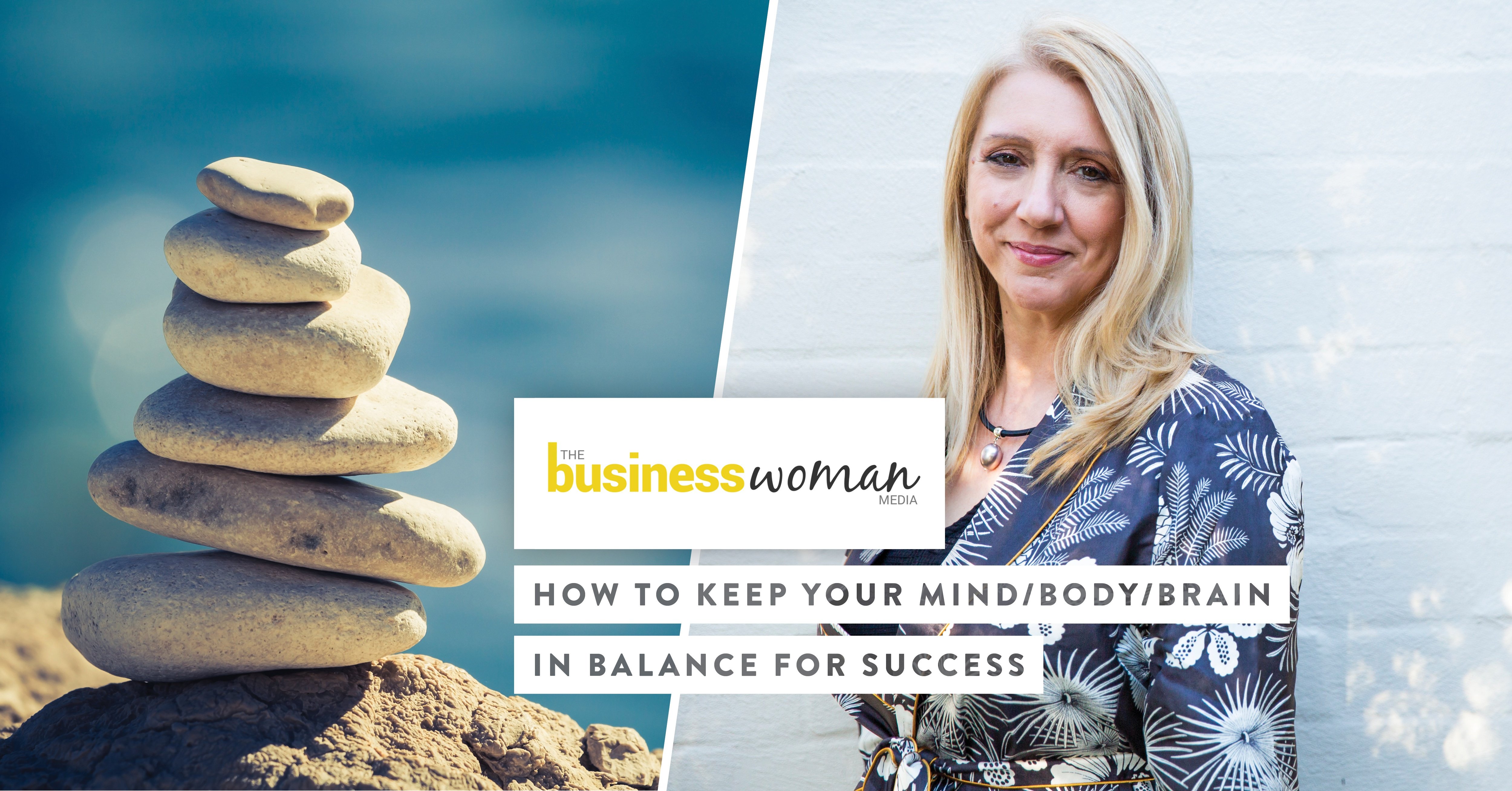
Everyone seems to constantly look for balance in their lives. It’s almost as if we walk a tightrope, and we sometimes desperately fight to stay on while stressors constantly pummel us. For women, the tightrope is often even narrower and less forgiving. Keeping the mind/body/brain balance in conditions like this may seem futile, and we cannot perform at our best if we are simply trying to keep up with everything.
Somehow, the markers of success seem to have shifted. Once, happiness, fulfilment and individual growth were a barometer of success, but now everything seems to have turned to profits and how much productivity can be squeezed out of human workers.
As a result of this constant drive for profit with little regard to the human condition, organisations make the mistake of not planning ahead. However, leaders should step forward and take a pause. We should stop and consider goals, not only for the immediate future, but for next year, or the next ten years. There is no balance if we are just trying to make money and please shareholders.
Motherhood should be considered a training ground of sorts for leaders–knowledge gained in the field. Just as parents look ahead and plan, so should leaders. The definition of “motherhood” shouldn’t be limited to biological children. This large umbrella also covers stepmoms, adoptive moms, loving aunties, moms to furbabies, and women in mentor positions.
In fact, any position in life that allows us to be nurturing is leadership training. Quality leaders are expected to train and manage a team, nurture new leaders, and guide everyone without being unkind or dismissive. And, somehow still find time to balance their own lives.
Leadership requires compassion, love and trust. However, these emotions are often deemed “weak”, and they are typically associated with female leaders. After all, how many women in leadership roles have felt marginalised because of gender? A certain outfit isn’t deemed appropriate (too short, too tight, too bold, too whatever), or their voices are overshadowed at meetings?
Like it or not, double standards still apply, but there is hope for the future. Now is the time to cultivate and mentor a new type of female leader–one who is confident and nurturing but who can still defend her ideas.
Neuroscience has shown the link between environment (everything around us we interact with) and plasticity in the brain. Plasticity refers to the ability of the brain to rewire and form new connections. Our lifestyles, including occupation, how much we exercise, and how we spend our free time has a direct correlation with cognitive health.1 When we improve our environments, we improve ourselves, and indirectly allow others to also lead healthier, more fulfilling lives.
“Patience, compassion and love are qualities that are considered “soft skills”, which are not given much importance in a patriarchal society.”
Shree Paradkar, Make Me A Leader2
Women can have it all if they wish. You can successfully balance a career, family, hobbies, pets, friends, whatever is important to you. The key is finding what is most important to you and learning to say “no” sometimes. You will increase performance and be a better nurturer, leader, and all-around person when you take care of your physical and mental health first.
Diversity in leadership, whether it encompasses gender, religion, race, mindset or age, is important if we are going to change how leadership looks. It’s time to change the system and recognise that human growth, happiness and achieving a balance between work and the rest of life is just as significant as making money.
To find balance, you have to learn to let some things go. No one can do it all. You will burn out at some point, it’s inevitable. Instead of pulling yourself into a million pieces, consider these thoughts for balance in your life.
Women offer a different kind of leadership, and this style usually embraces compassion, kindness and trust. If organisations want to see more opportunities for growth, female leaders should step forth and answer the call. When you take time for yourself, practice meditation, and sleep properly you will set the stage for success, and create a balance between work and everything else in your life.
Originally published in The Business Woman Media.
Citations
1. Baroncelli L, Braschi C, Spolidoro M, Begenisic T, Sale A, Maffei L. Nurturing brain plasticity: impact of environmental enrichment. Cell Death and Differentiation. 2010;17:1092-1103.
2. Make Me A Leader [documentary]. Australia: About my Brain Institute; 2018.
These Stories on Performance

The About my Brain Institute develops brain-friendly leaders, teams and cultures through transformational experiences, digital tools and practical leadership training.
For press related enquires please contact us at:Monday to Friday
9:00am - 5:00pm (AEST)
Sydney, Australia
We reply within 48 hours!
General Business Enquiries:
hello@aboutmybrain.com
Technical Support:
support@aboutmybrain.com
No Comments Yet
Let us know what you think